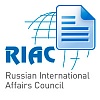Javier Solana: We will not see European army marching under the banner of the EU
In
Login if you are already registered
(no votes) |
(0 votes) |
Many political questions remain unsolved in the EU. Is common foreign policy possible? Will united European military forces be created? Is the EU likely to include new members? We have addressed all these questions to Mr. Javier Solana, Secretary General of the Council of the European Union, 1999-2009. This interview was conducted on the sidelines of the international conference: “Russia and the European Union: Partnership and Potential” organized by RIAC.
- What obstacles prevent EU members from elaborating a common exterior policy? Do you think a common European foreign policy is possible and what could be done to ensure it?
- I think the common foreign policy is possible. In fact, we were very close to have it before the crisis. The economic crisis has put so much energy in the economy that to a certain extent it has produced a delay in moving to a more integrated foreign policy.
Moreover, for some members of the European Union it is easier to make a common foreign policy, but some countries have different stories, and for them it is more difficult to do it. I think that a good movement is taking place now and we need a leader. She or he has to be strong enough to maintain this intention among the member-states and make them think that every decision will be more beneficial if made on behalf of the European Union, than on behalf of two or three countries. We also want to have a voice which is heard in the international arena.
- Do you think the creation of the consolidated European military forces is possible, could they be created in the near future? What functions could they fulfill?
- This is a more difficult question. I think there may be consolidated forces in the sense that they can operate in a better manner and be more interruptible. I do not think we are going to see the European army marching under the banner of the European Union but we are going to see very interruptible European armed forces from different countries that can be called upon for missions of peacekeeping or peacemaking under the mandate of the United Nations but not for participating in wars. This is what we have already had, we have been in operations in Africa and in some other places. They can also be placed to cooperate under the headquarters of NATO but the question is whether you will see the European army marching under the banner of the European Union, I do not think this is going to be seen in the foreseeable future.
- What is your opinion about EU enlargement, will this happen in the near future?
- This is a complicated question nowadays. Because one thing is to be a part of the European Union, and the different story will be being a part of the euro zone which will come out much more integrated after the crisis. It will probably be more difficult to enter into that group because the demands for the countries to enter will be tougher after the crisis but that may also help to open up more rapidly not only the euro zone but also the European Union. Now we have to think very carefully how to relate the European Union with the euro zone because it is a very powerful part of the EU due to the fact that the single currency makes more clear the integration that others do not have. So, this is another thing that has to be tackled in the coming years, I mean in a couple of years, and that may also change the approach to other countries coming into the European Union. The inner core will be the euro zone and, for example, the UK will be out, and that may open the way to create relations with some new countries. For example, with Turkey and maybe eventually with Russia.
Interviewer: Daria Khaspekova, RIAC program coordinator.
(no votes) |
(0 votes) |




